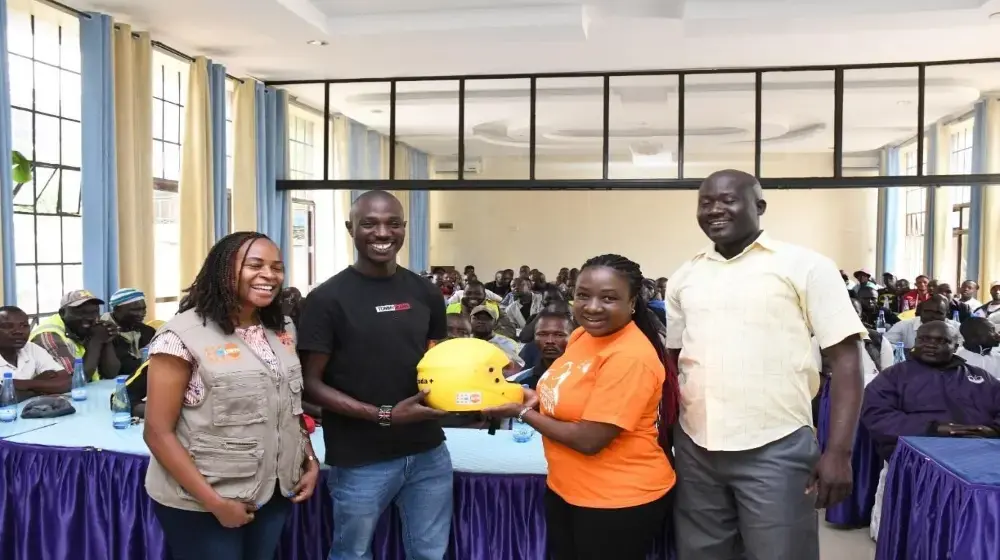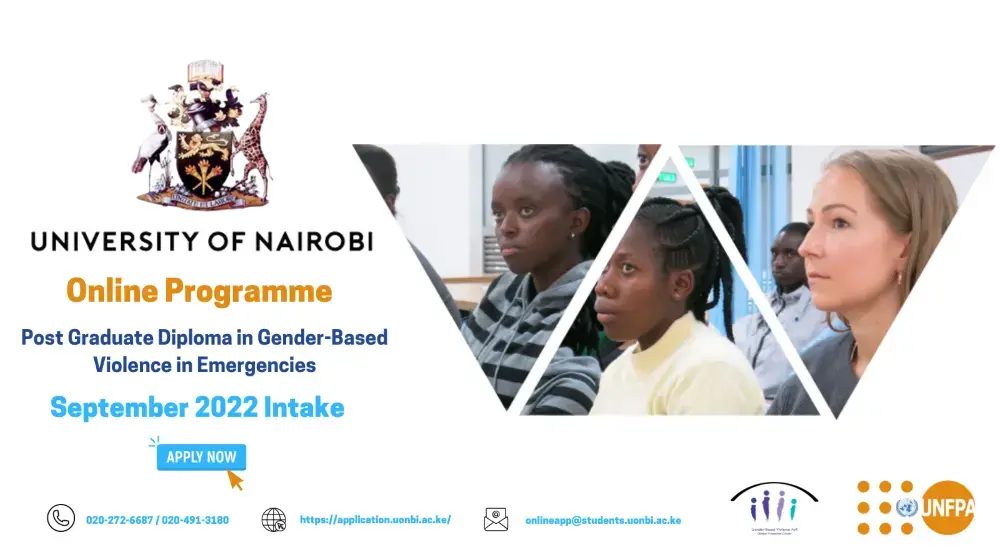3rd April 2024, Nairobi, Kenya – Nearly 90% of young adults enrolled in Nairobi’s tertiary institutions have witnessed technology-facilitated gender-based violence, with 39% having experienced it personally. This is according to a rapid study conducted by the Collaborative Center for Gender and Development (CCGD), in collaboration with the University of Nairobi Women’s Economic Empowerment (WEE) Hub and supported by the United Nations Population Fund, UNFPA.
While online violence has an extensive reach, the study showed that female students are disproportionately impacted, with 64.4% of female students having experienced at least one type of online violence, as compared to 35.5% of male students. “Female students are the primary targets of online attacks such as online defamation and non-consensual pornography, with a lasting psychological, social, and economic impact on those affected,” said CCGD Executive Director Masheti Masinjila. The triggers for technology-facilitated gender-based violence range from personal conflicts and revenge to the perceived anonymity of online interactions.
Tertiary institutions surveyed reported the existence of disciplinary, legal, and supportive measures to combat technology-facilitated gender-based violence. Low awareness among students of these measures, coupled with a failure by many to recognize online violence as a specific form of gender-based violence has impeded efforts being made by the institutions to address the issue. Furthermore, qualitative data collected from various officers within the country's justice system, including the office of the Director of Public Prosecutions (ODPP), the Directorate of Criminal Investigations (DCI), the Police, and the Judiciary shows that law enforcement and justice institutions are struggling to keep up with the evolving forms of TF GBV, mainly due to serious resource limitations.
“Digitization is a global megatrend with great potential for achieving the development goals. We are however concerned that the online world is quickly becoming a new frontier for gender-based violence, and it is therefore imperative that we work together to make technology and digital spaces safe and equitable for all,” said UNFPA Representative Anders Thomsen.
In 2021, UNFPA launched the BodyRight campaign, which calls on policymakers, technology companies, and social media platforms to take image-based abuse and online misogyny as seriously as they take copyright infringement. The UN agency is working to strengthen efforts aimed at documenting, preventing, and responding to technology facilitated gender-based violence.
To compile the study, researchers spoke to 728 respondents between October and December 2023. The respondents were drawn from three diverse tertiary institutions in Nairobi, including the University of Nairobi, Zetech University, and Kabete National Polytechnic. The institutions selected encompass a public university, a private university, and a technical institution. This purposive sampling was designed to ensure a balanced representation and to gather insights from a broad spectrum of tertiary education settings. Key Findings Include:
The most common forms of TF GBV witnessed and experienced were online defamation (21.9%), cyberbullying (19.1%), and non-consensual pornography (17.8%).
- Online defamation (34.4%) and non-consensual pornography (24.4%) are the most common forms of TFGBV against female students, while male students mostly experience online defamation (43%) and cyberbullying (39.4%).
- Male students (78.6%) were identified as the top perpetrators of TF GBV, followed by female students (11.5%) and male teaching staff (5.4%).
- Technology-facilitated gender-based violence was most prevalent on social media platforms such as X, formerly Twitter (18.4%), WhatsApp (17.0%), Facebook (16.8%), Telegram (14.2%), Instagram(14.2%) and TikTok (13.7%).
- Victims of TFGBV often seek social support, intervention from digital platforms, and legal support, but a notable number take no action.
- Gender, economic vulnerability, physical appearance, limited digital safety measures, and sharing of personal information online, among other factors, were listed as aspects that increase individuals’ vulnerability to online violence.
“The findings from this study underscore the urgent need for targeted interventions to protect young people from technology-facilitated gender-based violence,” said the University of Nairobi WEE HUB Research Fellow Valarie Udalang. “We are committed to leveraging this research to advocate for policies and programs that effectively address TF GBV within our higher education institutions.”
Download the full study HERE.





